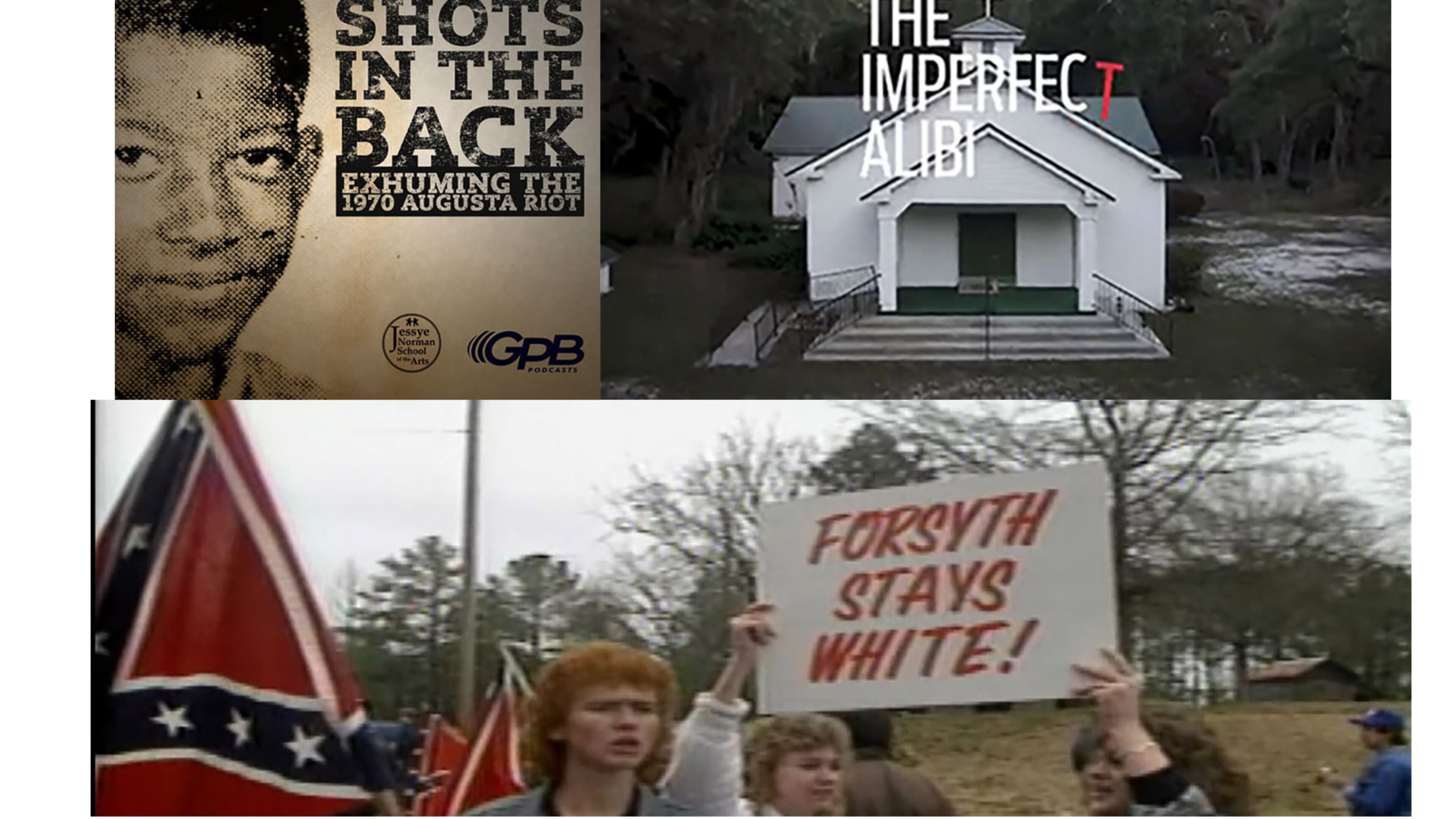The Atlanta Journal-Constitution, 11 Alive, GPB win national Edward R. Murrow Awards

The Atlanta Journal-Constitution, 11Alive and Georgia Public Broadcasting all pocketed prestigious Edward R. Murrow Awards today.
The AJC won the award for best investigative reporting for a large digital news organization for criminal justice reporter Joshua Sharpe’s “The Imperfect Alibi,” in which Sharpe unearthed evidence in a decades-old murder that helped set a wrongfully convicted man free.
Sharpe looked into the 36-year-old double murder of Harold and Thelma Swain in Camden County on the Georgia coast. Dennis Perry was arrested in 2000 and later convicted of murdering the Swains, who were shot inside their church in 1985. Perry’s convictions were overturned in July 2020 after new DNA evidence linked a former suspect, Erik Sparre, to the crime scene. Perry was formally exonerated last month.
Reporting weeks earlier by Sharpe showed Sparre’s alibi the night of the murders could not be true.
“It’s surreal and mind-blowing to me looking at the other winners,” Sharpe said. “It’s amazing to see my story next to those others.”
WXIA-TV, the NBC affiliate which is known locally as 11Alive, won for hard news among large television stations for its historical look at Forsyth County’s past as a bastion for white people called “Whitewashed: The Racial Cleansing of Forsyth County.”
In 1912, Forsyth County forced more than a thousand Black residents out after lynching a Black man accused of raping a white woman. The county stayed nearly all white for more than seven decades. Oprah Winfrey did a show in 1987 focused on the county’s lack of Black residents. Brendan Keefe, the 11Alive reporter, noted that the county has become far more diversified in recent years with 16 percent Asian, 10 percent Hispanic and four percent Black residents. Residents recently created a marker to memorialize the lynching that led to the cleansing.
“Awards like this validate 11Alive’s decision to dedicate time and resources to long-form storytelling,” Keefe wrote in a text. This is his fifth Murrow award with 11Alive and sixth overall.
“This particular story was one of the most meaningful of my career,” Keefe added. “I spent hours in a Black cemetery lost between two cul de sacs, photographing tombstones that all date before the 1912 lynching and public hangings in Forsyth County. I also spent days researching property records that have gaps where Black-owned land was stolen by white neighbors after one-tenth of the county’s population was forced to flee under threat of violence.”
GPB’s award for large market radio in the excellence in diversity, equity and inclusion category also explored a shameful historical event via its podcast “Shots in the Back: Exhuming the 1970 Augusta Riot.”
The riot in May of 1970 stemmed from the suspicious death of Charles Oatman, an African American teenager held in the county jail. Oatman’s death sparked protests and riots that led to six Black men shot in the back by white police officers. Over two days, looters ransacked and burned dozens of Black businesses, turning city blocks into war zones. The National Guard was called in to quell the unrest.
GPB worked with the Jessye Norman School of the Arts to put the podcast together.
“We made a unique podcast that both told an important story and demonstrated how that knowledge could engage young people today,” said Sea Stachura, Augusta-based teacher and journalist who produced the podcast. “We created context so that white listeners were clued in and listeners of color weren’t insulted by the content or storytelling.”


